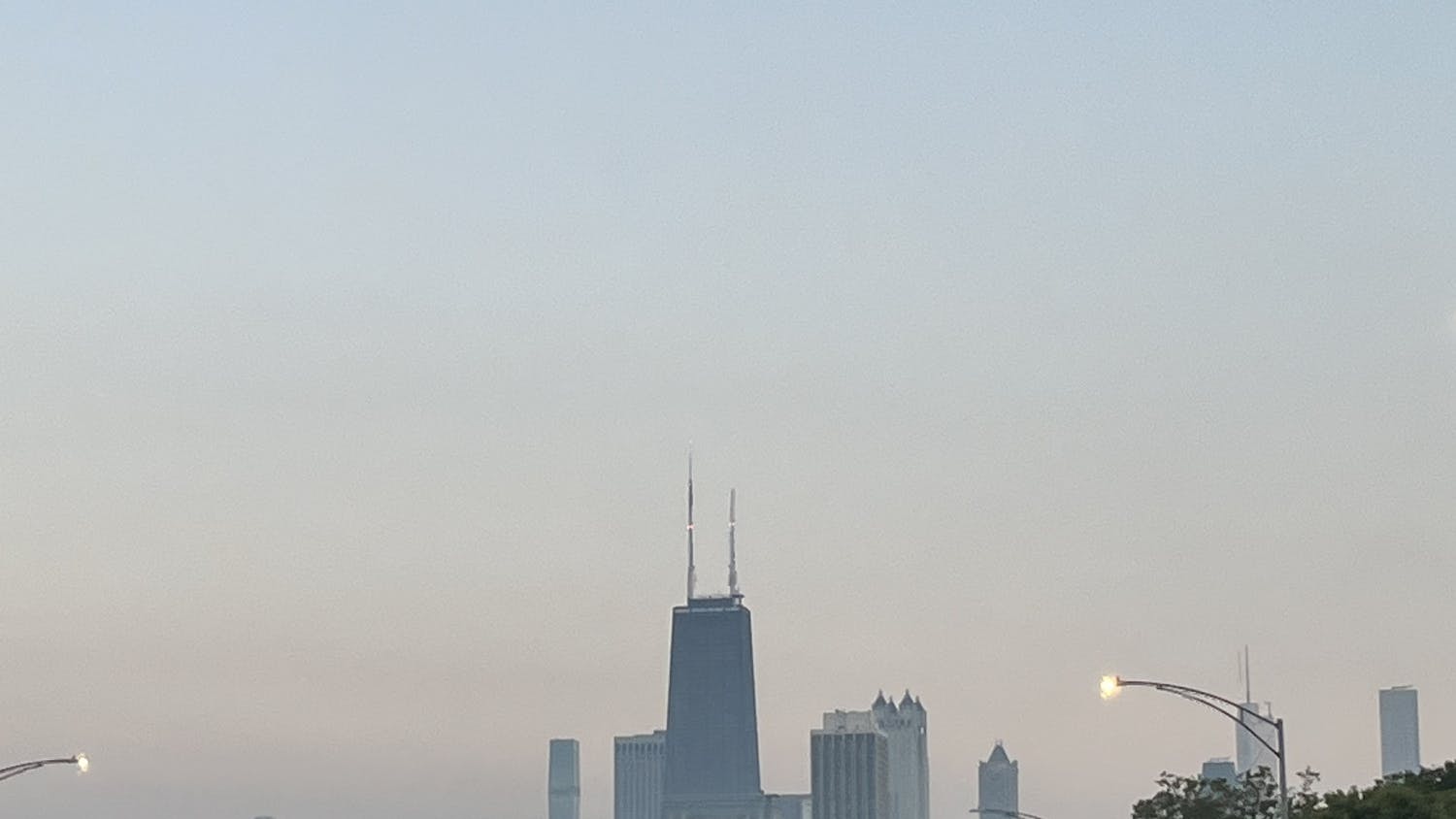Jake Sullivan, a former top advisor in the Obama Administration, participated in a conversation Wednesday with Ambassador Daniel Benjamin, the director of the Dickey Center for International Understanding, in Filene Auditorium.
Sullivan is currently a Montgomery Fellow at the College, which involves visiting classes, meeting with faculty and students and giving a public lecture. In addition to the duties of the fellowship, Sullivan is currently teaching Government 85.01, “Diplomacy.” He will continue to be part of the Dartmouth community this spring as the Magro Family Distinguished Fellow in International Affairs.
Before coming to Dartmouth, Sullivan served as director of policy planning at the U.S. State Department from 2011 to 2013, national security advisor to vice-president Joe Biden and as a lead policy advisor to Hillary Clinton’s 2008 and 2016 presidential campaigns. Sullivan notably opened the initial secret channels of communication with the Iranian government and carried out the early negotiations which lead to the Iran nuclear deal of 2015.
“It’s important to understand that Jake Sullivan has been operating at the highest level of U.S. policy and politics,” said Benjamin, who worked alongside Sullivan at the State Department as ambassador at large and coordinator for counter-terrorism and nominated him for the Montgomery Fellowship. “He has a range of experience that is just remarkable, almost unparalleled, and I think it’s an amazing thing that we at Dartmouth can benefit from that.”
Sullivan’s talk began with an introduction from interim director of Montgomery Program and music professor Steve Swayne. Benjamin and Sullivan’s conversation focused on American foreign policy in the age of President Donald Trump, touching on America’s relations with Europe, the U.S.’s role in the Middle East, Russia and the future of U.S.-China relations.
“Now, the largest variable of all in global politics is the United States of America,” Sullivan said. “That will not simply end if Donald Trump walks out of the White House.”
Sullivan sees Russia as being one of the key foreign policy issues facing America today. He said that the “fundamental” job of the next president will have to be to stabilize the U.S.-Russia relationship.
Sullivan later shifted his focus to the escalating economic tensions between China and the U.S.
“I don’t believe that we are destined for a new Cold War with China,” Sullivan said.
Stressing the importance of good diplomatic relations with China, Sullivan said he believes that the U.S. will be able to establish a “set of understandings” with China which would form a friendlier relationship more than competition.
“There is no more important issues in American foreign policy or more important relationship that the one with China, and if we don’t get this right we are all in for it,” he added.
Sullivan also discussed the upcoming 2020 presidential election and the wide array of Democrats seeking the nomination.
“There is a way for politics to become a unifying rather than divisive force,” Sullivan said. Looking ahead to the 2020 primary, Sullivan noted “there is such a hunger for voices that are more about healing and unity than going to the ramparts.”
In an interview after the event, Sullivan emphasized the central role which policy will play in the 2020 primary and general election.
“You can’t spend all your time attacking Donald Trump,” he said. “You’ve got to put out an affirmative vision about what you’re going to do for people.”
He added that policy will play an essential role in 2020, allowing Democratic candidates to hold Trump accountable to the American people. Sullivan said that candidates will likely focus on the ways in which Trump’s rhetoric has not matched his policy actions.
In the interview, Sullivan also discussed his reasons for coming to Dartmouth. After deciding to move to New Hampshire, his wife’s home state, Sullivan said he was drawn to Dartmouth for its “intellectual energy, commitment to the information [he] cared about and students who are passionate about changing the world.”
He also noted the importance of academic institutions like Dartmouth at this moment of great flux in international relations.
We need thinkers who are “not in the fog” of politics to design “new, innovative and forward looking solutions,” he said. Sullivan added that having policy makers step out of the political arena, as he is doing at Dartmouth, is important work allowing them to “spend time with academics, professors and intellectuals and to spar and engage with students who bring their own perspectives,” he said.
The talk was “a little pessimistic but probably truthful” from a foreign policy perspective, said Aziz Woodward ’22, adding that from a political perspective looking ahead to 2020 Sullivan’s comments were “optimistic.”
Robert Williams ’21, who is in Sullivan’s course this term, also attended the event.
He said he found it inspiring to hear Sullivan’s views on American and foreign policy and have him teaching at Dartmouth.



